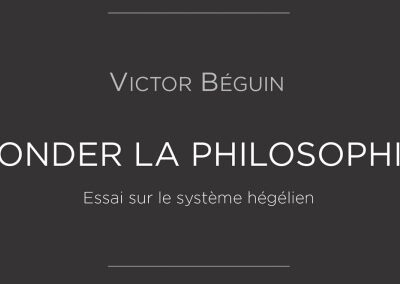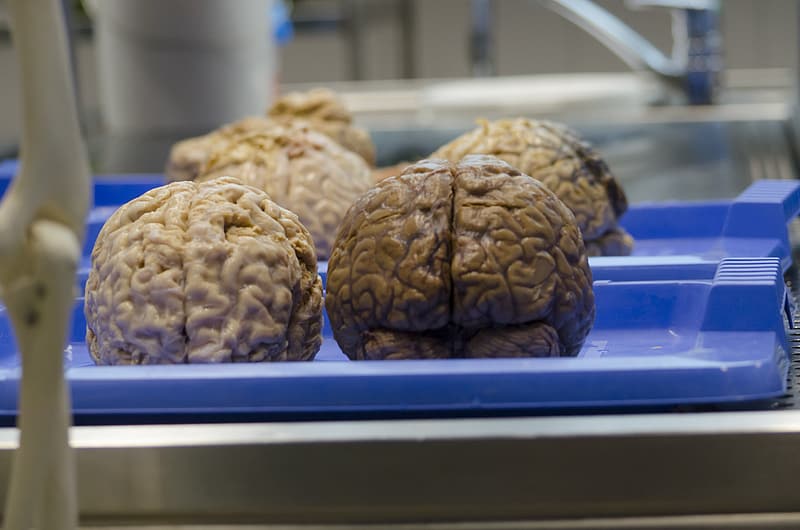Constructing a new epistemology of transgender persons: Impact of gender studies on mental health ideologies
Anna Baleige est médecin, psychiatre, dans un service de santé mentale communautaire et doctorante en santé publique à l’Université de Tours, EA 7505 Éducation Éthique Santé, sur le thème de la participation des personnes transgenres à l’organisation des soins. baleige.a@gmail.com
Mathilde Guernut est doctorante en sciences du langage à l’Université de Lille, UMR 8163 Savoirs Textes Langage, sur les thèmes des enjeux de pouvoir en santé mentale, la linguistique de corpus et l’analyse critique de discours. mathilde23guernut@gmail.com
Résumé
La dépathologisation en 2019 des personnes transgenres par l’Organisation Mondiale de la Santé a permis de mettre en évidence les bouleversements épistémologiques à l’œuvre à la confluence entre sexualité, genre et santé mentale. S’ils s’accompagnent de changements de l’épistémologie médicale, ils annoncent ce que Paul B. Preciado caractérise comme la fin du paradigme de la différence sexuelle. En nous appuyant sur le cadre conceptuel développé par Norman Fairclough, nous avons procédé à une identification des cadres idéologiques dans lesquels s’opèrent ces changements épistémiques, en illustrant notamment l’impact des processus de production et d’interprétation des savoirs. Dans cet article, nous défendons que le développement des études de genre a amené l’existence d’épistémologies alternatives qui, de par leur impact politique, ont permis d’appuyer cette dépathologisation.
Mots-clés : Épistémologie ; Genre ; Médicalisation ; Personnes transgenres ; Santé mentale
Abstract
The depathologization in 2019 of transgender persons by the World Health Organization highlighted epistemological shifts at work at the confluence of sexuality, gender and mental health. If they are accompanied by changes in medical epistemology, they signal what Paul B. Preciado characterizes as the end of the paradigm of sexual difference. Based on the conceptual model developed by Norman Fairclough, we have identified the ideological frameworks in which these epistemic changes are taking place, illustrating in particular the impact of the means of knowledge production and interpretation. In this article, we argue that the development of gender studies has led to the existence of alternative epistemologies which, because of their political impact, have made it possible to support this depathologization process.
Keywords : Epistemology; Gender; Medicalization; Transgender persons; Mental health
Introduction
This paper attempts to grasp the epistemological impact of gender studies on psychiatric and medical nosographies. To this end, we have focused on knowledge construction on transgender persons, located at the convergence of gender, psychiatric and medical epistemology.
The complex etymology of the term transgender combines medical epistemology and political activism[1]allowing for the political aggregation of a multitude of gender experiences and definitions[2]. Thus, rather than enumerating normative definitions, it is easier to define it by what it is not, i.e., the politics of what we will refer to as hetero-cis-normative binarity. We thus define as hetero-cis-normative binarity the political action that falls within the paradigm of sexual difference[3] and takes as its exclusive model of normality a sexuality based on gender binarity, the concept of heterosexuality and the immutability of gender assigned at birth. This definition is in line with what Paul B. Preciado describes as colonial heteropatriarchy[4]. With the substantive trans, it is today widely used by communities to define themselves and in opposition to terms such as transsexual or dysphoric, which refer to an essentialist vision specific to medical epistemologies.
Its political conceptualization allowed the redefinition of those sometimes presented as gender minorities as an oppressed group, setting their epistemology in issues of social power. This redefinition leads us to consider medicine and the control it can have over bodies as part of a system of oppression, referring to the concepts of biopolitics and the exercise of biopower (see Michel Foucault[5]). This deconstruction as power dynamics leads us to identify dominant and dominated discourses, for whom we will use the concept of state power (see Norman Fairclough[6]) as the use of ideology as a support for the oppression exercised by institutions and which can be manifested through coercion or consent. We will consider that this exercise of power confines dominated and dominants in the implementation of paradigms.
We will use mental health, in reference to the Constitution of the World Health Organization (WHO)[7], to refer to a bio-psycho-social reading of individual well-being, including medicine and psychiatry. If the notion of gender stems from medical epistemology, it has acquired its own independence with the development of gender studies. For the purpose of this analysis, we will summarize gender studies as the development of an alternative epistemology to the essentialist model promoted by psychiatry as a manifestation of the functioning of the brain, of the psychological as a proxy for the biological.
 We will defend the thesis that, through the structuration of alternative epistemologies, gender studies supported the depathologization of transgender persons and contributed to a paradigm shift in mental health. To this end, we will structure our argument around a synchronic analysis of contemporary mental health ideological frameworks and their epistemologies of transgender persons. We will rely heavily on Preciado’s discourse[8], which we consider a cornerstone of epistemological deconstruction of transgender persons’ medicalization. We chose not to focus on the role of psychoanalysis, which is unevenly distributed worldwide and extensively analyzed in his text. Since its aim is to highlight the epistemological mechanisms of medical constructions, this paper is written almost exclusively from a Western perspective, which may give a false illusion of robustness to certain medical concepts that tend to generalize socially defined exceptions as immutable natural explanations.
We will defend the thesis that, through the structuration of alternative epistemologies, gender studies supported the depathologization of transgender persons and contributed to a paradigm shift in mental health. To this end, we will structure our argument around a synchronic analysis of contemporary mental health ideological frameworks and their epistemologies of transgender persons. We will rely heavily on Preciado’s discourse[8], which we consider a cornerstone of epistemological deconstruction of transgender persons’ medicalization. We chose not to focus on the role of psychoanalysis, which is unevenly distributed worldwide and extensively analyzed in his text. Since its aim is to highlight the epistemological mechanisms of medical constructions, this paper is written almost exclusively from a Western perspective, which may give a false illusion of robustness to certain medical concepts that tend to generalize socially defined exceptions as immutable natural explanations.
To further illustrate the impact of gender studies, we will report on the results of a synchronic analysis of gender in mental health ideological frameworks to report on how transgender persons are conceptualized within each of today’s ideological frameworks. Studying transgender persons is used here as a proxy for the integration of gender studies. Following a quick definition of each of the four frameworks, we will begin by deconstructing mechanics driven by ideology and then present its theorization and practical application. This methodology had previously been used to account for the multiplicity of contemporary ideological frameworks in mental health and highlighted three major frameworks: Psychiatry, Recovery and Mad Pride[9]. Here, we focused not only on epistemology, but also on social purpose in regards to the use of power. From the 19th century, we identified six distinct ideological frameworks, four of them being actively used in contemporary medical research. Half are based on biology and justify organizational modalities of power, and half focus on social structure and impact hermeneutic capacities and common sense[10].
I – The biological perspective
These ideological frameworks share the predominance of biology as a theoretical approach to mental health and serve the exercise of state power. Although the theories vary they share a similar praxis: the exercise of medical authority over the containment and control of everyday life of part of the population. The discourses produced share the same orders of discourse and their production and interpretation processes are controlled by the state and medicine.
Contemporary frameworks both derive from a common ideological framework which dominated medical discourse from the beginning of the 19th century to the end of World War II (WW2) and aimed towards the acquisition of the new republican state’s control over the power of total institutions[11], in conjunction with the police and justice systems[12]. As such, it is faithful to Fairclough’s description of the exercise of state power through coercion and serves primarily to respond to the need of new justifications of power through the development of a new epistemology. We use the French term aliénisme to characterize this framework highly developed and implanted in France. Although it marks a major epistemic change, aliénisme does not represent a paradigm shift (unlike the shift regarding sexualization of bodies[13]), and continues to implement practices of the previous century that Foucault described as the Great Confinement[14]. Previous epistemologies based on insanity as a moral and non-organic evil, rendering the person unfit for life in society and motivating their protective isolation[15], are replaced by a biological basis, transforming the insane into the mentally ill. Madness was framed as hereditary and untreatable, modifying the social function of insanity and giving institutions the role of protecting society[16]. This new epistemology had an impact on practice until the end of WW2 and fueled the eugenicist psychiatry of the early 20th century, serving as justification for policies of mass sterilization of “confirmed criminals, idiots, imbeciles and rapists”[17] and euthanasia where it is argued that psychiatry played a central role in the Holocaust[18]. The Nuremberg trials, the birth of the United Nations (UN) and the Universal Declaration of Human Rights marked the end of aliénisme and correspond to the ideological reforms of the mid-twentieth century supporting the shift from coercion to the manufacture of consent in the exercise of state power[19].
Preciado argues that the medicalization of transgender persons is rooted in the 19th century and the adoption of the paradigm of sexual difference. This led to developing “the aesthetics of anatomical difference”, placing what are regularly presented as realist anatomical truths[20] in their socio-cultural context by integrating the construction of scientific discourse and the aesthetics it produces[21]. Through its impact on the social and practical modalities of knowledge construction, this paradigm led to an understanding of human beings constructed through the prism of hetero-cis-normative binarity, or what Preciado calls the “circus of the hetero-patriarchal binary regime”[22]. Any deviation from this new definition of normality becomes a new form of abnormality which, “taken both as an object of analysis and a target of intervention”[23], will underlie its medicalization in contemporary aliénisme.
Before the concept of gender was introduced, the hetero-cis-normative binarity did not differentiate between today’s notions of sexual orientation and gender identity, leading alienists and psychiatrists to assign a shared status of degenerate on the basis of common nosographic constructions: first Jean-Etienne Esquirol with genital inversion in 1838[24], then Richard von Krafft-Ebing with sexual inversion in 1886[25]. The major nosographic challenge for psychiatry at that time was to evaluate potential risks to society of insufficiently systematic medicalization by differentiating between congenital and acquired forms:
The establishment of the fact that contrary sexual instinct existed before indulgence in masturbation is of great importance with reference to deciding whether the anomaly is congenital or not. In this, however, a difficulty arises, owing to the possibility of imperfect localization of past events (illusions of memory). For the presumption of acquired contrary sexual instinct, it is important to prove the existence of hetero-sexual instinct before the beginning of solitary or mutual onanism.[26]
This focus carries the main clinical stake: since it is assumed that an acquired anomaly can be corrected while a congenital anomaly will be considered incurable, confinement will initially be justified by the necessary specialized psychiatric evaluation and its continuation through either treatment of the anomaly or its incurability. In matters of sexuality, the challenge of psychiatry is mainly to protect the hetero-cis-normative binarity by controlling morals and racial purity, in conjunction with the justice system and the criminalization of LGBTQI+ behaviors. This can be illustrated by the contemporary texts of Eugen Bleuler, major contributor to today’s concepts of schizophrenia and autism:
I would begin with compulsion in the case of incurable criminals and on the basis of consent in the case of other more serious psychopathies, and then gradually alter the general attitude and legislation in accordance with experience. But if we do nothing but make mental and physical cripples capable of propagating themselves, and the healthy stocks have to limit the number of their children because so much has to be done for the maintenance of the others, if natural selection is generally suppressed, then unless we will get new measures our race must rapidly deteriorate.[27]
Even switching from aliénisme to more modern frameworks, other forms of control over the reproduction of transgender persons, with increasing contribution of the administration through marriage or change of civil status, replaced the lost benefit of confinement. In France, forced sterilization was lifted in 2016 and remains practiced in Europe despite its condemnation[28]. Biological perspective needs to define a biological lesion, a developmental anomaly, to legitimize its practices. The idea of damages occurring in the brain (e.g.Von Krafft-Ebing and his contemporaries[29]) is still an active field of research today[30] combining neuroscience, neuroimaging, genetics and epigenetics. These researches allow the inclusion of psychiatry’s hold of transgender bodies inside the rest of medicine, and thus consecrates the populations it oppresses to the status of patients. The biological vision is now shared by other disciplines and participates in an epistemic construction where:
[…] sexual orientation and gender identity are as biological, innate and immutable as the other traits conferred during that critical time in gestation. Negative social responses to diverse orientations or gender identities have caused marginalization of these individuals with resultant alienation from medical care, reduced self-care and reduced access to medical care.[31]
Biological psychiatry and the biomedical approach will, however, diverge on the conceptualization of biological theories in relation to the social environment.
I. 1. Biological psychiatry (1880-present)
Contrary to aliénisme, the purpose of biological psychiatry is not to justify coercion, but enable the use of state power through consent. To use Miranda Fricker’s concept[32] , it enables psychiatry to control hermeneutic resources used to conceptualize mental suffering:
In virtue of their scientific authority, psychiatric concepts, where used, tend to skew the hermeneutical resources toward psychiatric understandings of problems, marginalizing other explanations – such as individual abuse or social discrimination – in medical and political contexts.[33]
Embracing biology expanded the field of psychiatry outside of asylums to quickly include new medical conceptions of everyday suffering. This increase in power persisted beyond WW2 with the identification of a growing number of mental illnesses, which rose from 108 in 1952 to 354 in 1994[34]. Epistemologically, a variety of theories derived from social degeneration arise and overlap, sharing the hereditary nature of mental illnesses in spite of the absence of scientific evidence[35]. Another core postulate is that mental illnesses are brain diseases[36], justifying research in neuroscience and neuroimaging. This epistemic pursuit, still ongoing today, illustrates the central issue of legitimacy in regards to other medical disciplines[37] and justifies coercion – disregarding charges of ill-treatment[38] or torture[39] by the UN. However, it succeeded in creating a demand for medical treatment, influencing hermeneutic capacities and modified common sense to allow state power to be growingly expressed by manufacturing consent:
This is ‘common sense sustaining unequal relations of power’ in the sense that it helps deflect attention away from an idea which could lead to power relations being questioned and challenged – that there are social causes, and social remedies, for social problems.[40]
Biological psychiatry defines its illnesses only as biological abnormalities, relegating psychological and social aspects to external factors influencing access to care or the attitude of patients from the perspective of discrimination. Transgender persons are conceptualized as suffering from cerebral anomalies requiring medicalization. The major evolution since has been the differentiation between what is now called sexual orientation and gender identity in the middle of the 20th century[41] with the creation of transsexualism (David Cauldwell, 1949, generalized by Harry Benjamin in 1966[42]). This diagnosis is integrated in psychiatric classifications: in the 3rd Diagnostic and Statistical Manual of Mental Disorders (DSM-III, 1980) and in the 10th International Classification of Diseases (ICD-10, 1990)), replacing or completing transvestism.
The main practical consequence of this conceptualization is the psychiatrist’s intention to correct the inversion and thus bring the individual’s behavior back in line with their assigned gender. Preciado points out that this nosographic anchorage is combined to a “shift in language”, reclassifying transsexualism as a behavioral disorder (see ICD-10 where the chapter of “mental disorders” becomes “mental and behavioral disorders”). Clinical practices are thus oriented towards the correction of disruptive behavior, now grouped under “conversion therapies”, initially involving both gender identity and sexual orientation. While their end is still awaiting, as shown by recent debates in France, their significant contradiction with human rights allowed for growing political activism through a global ban movement.
I. 2. The biomedical approach (1945-present)
The biomedical approach is ideology supporting organizational modalities of exercising state power through psychiatry, following the fall of aliénisme, to enact biopower. Shifting from aliénisme, through hypostatic abstraction[43], the illness replaced the individual as justification of incapacity[44]. Coercion is gradually made invisible in practice and in language where “compulsory hospitalizations” became “care without consent” in the 2011 French law. These lexical evolutions contrast with the motive of legislative changes, namely the unconstitutionality of previous laws in regard to individual rights[45]. The biological perspective is backed up by a psycho-social clinical arsenal. Psychological and social aspects are conceptualized as the individual and functional impact of biology. Psychosocial rehabilitation[46] techniques are developed to enable persons who accept the common sense – biological illness as the root of their problem and a new status of patient – to reintegrate society under the new status of rehabilitated patient.
Practical implementation integrates psychological and social dimensions as consequences, proxies of the biological, integral parts of the disease and therefore under the authority of the psychiatrist. If this approach may have been impacted by the development of gender studies and the deconstruction of gender as a social practice, it differs mainly on the epistemological aspect and keeps to an essentialist vision. Reaffirming hetero-cis-normative binarity, illness does not refer to the will to change one’s gender but to the transgression of gender norms that psychiatry actively reinforces[47]. Thus, transsexualism was first reshaped in the DSM-IV as gender identity disorder, then, in the DSM-5, absorbed the concept of gender dysphoria developed in 1973[48] and made it possible to widen the field of the medical intervention beyond simple transsexualism:
Encompassed in a spectrum of gender disorders would be effeminate homosexuality or hyper-masculine homosexuality in the female, male and female transvestitism, a fascinating subgroup of patients who could be termed inadequate passive-dependent personalities with a mild to moderate transvestic fetish and a group of overtly sociopathic persons who merely seek gender reorientation or sex conversion operations as a means of becoming a “professional” transsexual and thereby to gain fame, notoriety and wealth.[49]
Medicine proposes a set of psycho-social rehabilitation interventions aimed at bringing the person’s gender into conformity with their gender identity. This approach, diverging from conversion therapies, is based on the practical observation that it is easier to act on physical characteristics than on psychological ones. It became obvious from a hetero-cis-normative binary viewpoint that wishing to change one’s assigned gender had to be caused by significant suffering, and common-sense dictates physician’s role to ease suffering. It appears then natural to propose solutions, provided that the person meets a certain number of criteria, participating in the construction of what sociologist Karine Espineira calls a therapeutic shield[50]:
Factors such as physical passability, vocational skills, overall psychic and emotional stability, past and present ego strengths, familial support, appreciation of core gender principles, absence of significant sociopathy, absence of phychotic symptoms and multiple or intensive neurotic symptoms (as manifested by impulsivity, poor judgment, deviousness, narcissism, manipulativeness, masochism, exhibitionism and low self-esteem) are all factors that are heavily weighted in the overall team decision as to acceptability for sex conversion.[51]
There is no need to deconstruct this list to see clearly how it fits into the hetero-cis-normative binarity, into the paradigm of sexual difference, how it leads transgender persons to parade in the “circus of the hetero-patriarchal binary regime”. Gender dysphoria represents the necessary suffering that transgender persons have to endure because of their illness, their abnormality, or to use Preciado’s words their status as “monsters”. However, the current use of the concept remains unclear and oscillates between its biomedical conception and its role in the exercise of administrative power as a necessity for access to hormones or surgery[52], illustrating the links between nosography, epistemology and the exercise of state power.
II – The social perspective
These frameworks are characterized by their heterogeneity of approaches and theories. They share the goal of ending power dynamics, mainly the use of coercion, and are rooted in the psychiatric survivors movement of the 1960s, in line with the civil rights movement.
 Development of new hermeneutic resources and the creation of the concept of recovery[53] questioned the legitimacy of the exercise of power by relying on skepticism towards psychiatric theories, and, facing epistemic uncertainties, advocates for practical and political changes on the basis of medical ethics (primum non nocere) and human rights[54]. Subsequently, it developed a unified anti-language aiming to remove certain traits inherent to mental illness, most notably incurability. It relies heavily on the concept of lay knowledge drawn from personal experience, defined as a “truth learned from personal experience with a phenomenon rather than truth acquired by discursive reasoning, observation, or reflection on information provided by others” and known as experiential knowledge[55]. The practical demonstration of the possibility for psychiatric survivors to recover started a paradigm shift with further exposure of the epistemic fragility of psychiatry, such as Rosenhan’s experiment[56].
Development of new hermeneutic resources and the creation of the concept of recovery[53] questioned the legitimacy of the exercise of power by relying on skepticism towards psychiatric theories, and, facing epistemic uncertainties, advocates for practical and political changes on the basis of medical ethics (primum non nocere) and human rights[54]. Subsequently, it developed a unified anti-language aiming to remove certain traits inherent to mental illness, most notably incurability. It relies heavily on the concept of lay knowledge drawn from personal experience, defined as a “truth learned from personal experience with a phenomenon rather than truth acquired by discursive reasoning, observation, or reflection on information provided by others” and known as experiential knowledge[55]. The practical demonstration of the possibility for psychiatric survivors to recover started a paradigm shift with further exposure of the epistemic fragility of psychiatry, such as Rosenhan’s experiment[56].
Alternative modalities of knowledge construction under the direct control of survivors resulted in divergent epistemologies, questioning the essentialism advocated by psychiatry[57]. Survivors, not psychiatrists, contributed to the UN’s application of human rights to disability and mental health, leading to the Convention on the Rights of Persons with Disabilities in 2006, which calls for a ban of coercion and recognition of legal capacity. Mental illness is reframed as disability[58], with implications on state power:
The crisis in mental health should be managed not as a crisis of individual conditions, but as a crisis of social obstacles which hinders individual rights. Mental health policies should address the ‘power imbalance’ rather than ‘chemical imbalance’.[59]
If the dominant discourse encompasses an essentialist approach based on an epistemology constrained by hetero-cis-normative binary, the social perspective represents attempts of dominated discourses to modify power balance. Political action aims at transforming the means of discourse construction. While the UN is surprisingly silent on sexuality, other founding texts such as the Yogyakarta principles[60] provide a framework for the application of human rights. This political struggle driving transgender persons’ organizations, in a similar way to psychiatric survivors if not more effective and more organized by their inclusion in the broader LGTBQI+ movement, peaked with the 2010 WHO’s detachment from medical epistemology in favor of inputs from gender studies:
The WHO, and not a Trans-Fags-Dykes Anarco-feminist organization, now asserts that ‘gender described as either male or female is a social construct, gender varies from society to society and can change over time’.[61]
The WHO officially announced the depathologization of transgender persons for the new edition of the ICD, adopted in 2019 andcoming into effect in2022. Although changes may be read as depathologization, ICD-11 retains diagnoses associated with transgender persons: gender incongruence of childhood and gender incongruence of adolescence or adulthood[62]. The professional experts in charge of designing the new classification argue that retaining these diagnoses “is in no way a ‘proposed pathologisation’, but rather a de-pathologisation” and that their deletion or inclusion as “non-disorder categories (Z codes) would not ensure appropriate access to services for this population”[63], joining the concept of therapeutic shield. To be understood, these arguments must be read in the context they were conceived in: ICD-11 was not only designed to classify human beings, but also to have a clinical impact and usefulness in terms of practice and communication[64]. It is also the first international medical classification that departs from the idea of a universal definition of health, referring to what Preciado describes as patriarcho-colonial ideologies[65], in order to take into account local socio-cultural contexts. The concomitance of moving away from universality, searching for practical solutions and recognizing gender as a social construction does not appear fortuitous and seems to fit with Preciado’s inevitable construction of a new epistemology:
Epistemology, by definition conservative, slow and viscous, then becomes recalcitrant, harmful or even deleterious, until it is replaced by a new epistemology, a new device, able to answer the new questions.[66]
Therefore, considering transgender persons within mental health frameworks quickly leads to a confusion of logical types, and one should not see in the following analysis an attempt at repathologization, but rather a reading with the specific codes of each ideological framework.
II. 1. The recovery-oriented approach (2013-present)
The recovery-oriented approach follows the recognition of psychiatric survivors as an oppressed minority by the UN and appears for the first time in political discourses in 1998[67] and in 2013 for the WHO. In practice, although many tools are being developed, implementation is difficult as professionals remain trained in a psychiatric framework and services are expected to similarly enact state power. This led to epistemological confusion and recovery to be reconceptualized as an additional tool in the psychiatric practice[68], mixed with psycho-social rehabilitation. A growing number of states are putting forward recovery-oriented policies without changing the social organization or the coercive role of psychiatry[69]. This reappropriation by the state of anti-language acts as a process of naturalization[70] and an apparent depoliticization of recovery[71]. Regarding discourse production, the recovery-oriented approach balances academic, professional and experiential knowledge[72], but in practice, power imbalances lead to phenomena of tokenism and psychiatric survivors rejecting recovery[73] (see Recovery in the Bin[74].
Recovery-oriented practice supports an organizational modality of composing between a new epistemology and the constraints of the exercise of state power. Thus, applying this ideological framework to transgender persons would be based on several principles[75] : accepting depathologization by recognizing the person’s capacity for self-determination rather than the physician’s; recognizing that suffering is neither necessary nor a reflection of mental illness but rather the impact of hetero-cis-normative binarity and therefore rejecting any attempt to repathologize transgender persons based on alleged psychiatric co-morbidities[76]; supporting the community mental health system which places the persons themselves and their peers as first line mental health and general practitioners as an entry point into the health care system[77].
This model is also known as the informed consent model[78] and marks – if only in language – a rupture with psychiatry, still largely alien to the principle of consent. Psycho-social rehabilitation is replaced by transition, a concept found in the WHO’s official definition of gender incongruence. In practice, relying on consent and the ability for each person to state their objectives and their course of action makes it possible to go beyond the question of binarity and thus opens up the possibility of non-binary gender expressions. In this case, the use of the mental health system is conceptualized as an acceptable solution pending global political changes, but suffers from practical difficulties with social organization where it is still largely under the influence of psychiatric and psychoanalytic ideologies[79].
II. 2. Mad Pride (1999-present)
Mad Pride marks the revival of psychiatric survivors movements and is named after the movement active in the United Kingdom between 1999 and 2012, as a continuation of the Black and Gay Pride movements[80]. Reclaiming terms used to stigmatize as a new anti-language, they aim to re-politicize alternative epistemologies, not to change psychiatric practices, but to contribute to a global paradigm shift:
The Mad Pride movement is not merely a movement for mental patients’ rights. It is a movement about the right to be different… In contrast to the Survivor’s movement, which focuses on changing the mental health system, the implicit if not explicit goal of the Mad Pride movement is a transformation of society as a whole.[81]
Movements aligned with the Mad Pride paradigm are relatively recent and their practices differ greatly, but share a particular concern for acting on means of discourse production based on social justice as a way to fight epistemic injustice[82]. Theoretical principles reframe mental illness as a form of psychic diversity and a normal phenomenon of human experience[83]. Mad people are then conceptualized as an oppressed minority based on this difference. If modalities of knowledge production vary, they remain under the control of Mad activists and are exemplified by initiatives of collectives such as Intervoice[84] or the Icarus Project/ Fireweed Collective [85]. Recently, Mad Studies[86] has emerged as a field of transdisciplinary academic study of the production of Mad knowledge.
In its history and mechanics, it is placed in the continuity of other civil rights movements, notably the LGBTQI+ Pride. Therefore, it seems fair to consider the Mad Pride as being similar to the LGBTQI+ Pride applied to the field of psychic difference, with a similarity in the exercise of state power through abnormalization and pathologization. The mental health of transgender persons would therefore be approached from the perspective of social power issues and would share certain founding principles identified in the recovery-oriented approach but reject any form of medicalization justified by the use of the health care system[87]. The overlapping dynamics of the feminist, anti-racist, intersex, trans, handi-queer and psychiatric survivor movements, as well as their convergent reading grids, lead us to consider a global paradigm shift rather than a multitude of specific changes. Thus, the abolition of hetero-cis-normative binarity is accompanied by a simultaneous abolition of patriarchal, colonialist, capacitist and sanist paradigms. As in other fields, mad people already initiated within Mad Studies[88] the development of “an epistemology capable of taking into account the radical multiplicity of the living”, which seems to mark the beginning of what Preciado considers as:
A process of transformation in the order of political and sexual anatomy similar to the one that led from Ptolemaic epistemology to Copernican heliocentric epistemology. Or from the monosexual regime to the anatomy of sexual difference between 1650 and 1870. Or to the one introduced by quantum physics and relativity in relation to Newtonian physics at the beginning of the 20th century.[89]
III – Discussion
The simultaneous existence of diverging ideological frameworks is probably the first result of this synchronic analysis. This brings out a new field of analysis on their communication and the construction of discourse at their convergence. Acquiring these discourses would probably be the first practical difficulty and a possible entry point would be to analyze their interactions within the transgender community. On an exploratory basis, these elements appear in Natalie Wynn’s videos, in which – while transitioning – she engaged different characters embodying a specific ideology[90]. These exchanges would center around Abigail Cockbane, a second wave feminist defending the primacy of biological sex, Tiffany Tumbles, self-defining herself as suffering from gender dyphoria, Justine, who defines gender as performance and her transition as the adoption of gender norms, and Tabby, who defends her self-determination independently of the social norms she wishes to abolish. Their dialogues respectively address the status of transgender women as women[91], the question of non-binarity in relation to psychiatry[92], and the place of aesthetics in gender transition[93]. If these questions seem to reflect obvious points of discordance between ideologies, they also highlight their political implications both through the clear political identification of each character, but also through the (de)structuring effect they can have on the millions of people watching them and discovering these issues for the first time.
 Beyond reinforcing the relevance of Preciado’s remarks, the results of this analysis highlight the overlapping of epistemological changes in mental health and gender. Indeed, Fairclough’s methodology shares an epistemic proximity with Preciado’s and a common connection with previous works, especially Foucault’s who already highlighted the proximity of sexuality, gender and psychic difference. By deconstructing the common sense and allowing a constructivist reading, gender studies, like Judith Butler’s[94], have made it possible to highlight the place of ideology in epistemic construction and initiate change. With reference to Julia Serano’s writings[95], they also enabled us to free biology from its authority over bodies and its position as a reflection of nature as a non-questionable justification for the exercise of state power. The stake would therefore be, first and foremost, political, in which movements on sexuality, gender and psychic difference will “perhaps face a new necropolitical alliance of colonial patriarchy and new pharmacopornographic technologies”[96].
Beyond reinforcing the relevance of Preciado’s remarks, the results of this analysis highlight the overlapping of epistemological changes in mental health and gender. Indeed, Fairclough’s methodology shares an epistemic proximity with Preciado’s and a common connection with previous works, especially Foucault’s who already highlighted the proximity of sexuality, gender and psychic difference. By deconstructing the common sense and allowing a constructivist reading, gender studies, like Judith Butler’s[94], have made it possible to highlight the place of ideology in epistemic construction and initiate change. With reference to Julia Serano’s writings[95], they also enabled us to free biology from its authority over bodies and its position as a reflection of nature as a non-questionable justification for the exercise of state power. The stake would therefore be, first and foremost, political, in which movements on sexuality, gender and psychic difference will “perhaps face a new necropolitical alliance of colonial patriarchy and new pharmacopornographic technologies”[96].
Conclusion
This analysis allowed us to highlight the relations between ideological frameworks and epistemic construction, rooting knowledge in construction processes, in a social context, in an ideology and ultimately in a paradigm. Our argument is that gender studies, by deconstructing these elements surrounding knowledge, have allowed the emergence of new epistemologies that have come to interact with the similar but slower dynamics observed in mental health.
The medicalization of homosexual and transgender persons illustrates two distinct methodologies of depathologization. Homosexuality’s removal from psychiatric classifications, in 1987 (DSM) and 1992 (ICD), was carried out in 1973[97]. It relied on an ethical interrogation on the best way to handle homosexuality, caught between political and practical stakes. Making nosography rely on ethics has been regularly cited as a major flaw in psychiatric epistemology and has largely challenged its essentialist theories[98], questioning why psychiatrists have the power to decide what is presented as a natural truth.
Gender studies made it possible to move this interrogation from ethics to politics. The WHO’s depathologization of transgender persons is based on field studies testing the hypothesis of gender dysphoria in a multitude of social contexts[99]. These studies sought first the existence of psychological suffering and then its origin by opposing an internal origin related to gender dysphoria and a social origin resulting from experiencing violence and exclusion[100]. International results largely highlighted that suffering was neither necessary nor internal, but related to phenomena of social violence. These results have come to invalidate the hypothesis of gender dysphoria and made it possible to ground the medical view of transgender persons in a constructivist social approach.
In both, the production of knowledge remained under the strict control of professionals, with the exception of the Lille study[101] where the steering committee included a transgender person who became on this occasion a peer researcher[102]. If gender studies made it possible to change the position of mental health experts, changing the means of knowledge construction is yet to come. One can therefore legitimately wonder what approach would transgender activists have taken had they been entrusted with such epistemic changes – sign of a genuine initiation of a paradigm shift.
These elements also raise questions about the WHO’s responsibility towards other mental health diagnoses. In terms of sexuality and gender, mental health is now conceptualized as a second-order property, unlike for mental illnesses[103]. However, the existence of alternatives and the weakness of psychiatric epistemology would be valid arguments for applying this depathologization process to all psychiatric diagnoses. But are the WHO and us, as a society, ready to assume the possible consequences for persons defining themselves as voice hearers[104]? To quote Preciado one last time, is answering this question more difficult ““than for a seaplane to land at Orly airport or for a quantum to ‘land’ at Newton’s”“[105]?
[1] Cristan Williams, “Transgender”, in TSQ, vol.1, no 1-2, Duke University Press, 2014, p.232–234.
[2] Katarzyna Dułak & Jan Świerszcz, Violence and empowerment psychological support for LGBTQ persons, Warszawa: Kampania Przeciw Homofobii, 2015, p.82.
[3] Paul B. Preciado, Je suis un monstre qui vous parle, Paris, Grasset, 2020. (translations by the authors), p.67-88.
[4] Ibid, p.44.
[5] Michel Foucault, Histoire de la sexualité I : La volonté de savoir, Paris, Gallimard, 1976.
[6] Norman Fairclough, Language and power, London, Longman Group UK Ltd., 1989, p.27-28.
[7] World Health Organization, Constitution of the World Health Organization, Geneva, WHO, 1946, p.1.
[8] Paul B. Preciado, op. cit.
[9] Mathilde Guernut & Antoine Baleige, « Crise environnementale et santé mentale : nouveaux enjeux épistémiques, nouvelles approches », Amnis, no 19, internet, Université de Bretagne occidentale, 2020.
[10] Norman Fairclough, op. cit., p.33.
[11] Erving Goffman, Asylums, London, Penguin Books, 1991.
[12]Antoine Baleige, L’enfermement psychiatrique, entre liberté, santé, et dangerosité : analyse critique de son articulation à la totalité du système social français, Internet, Baleige Antoine, 2019, p.136-173.
[13] Paul B. Preciado, op. cit, p.76.
[14] Michel Foucault, Histoire de la folie à l’âge classique, Paris, Gallimard, 1972.
[15] Philippe Pinel, Traité médico-philosophique sur l’aliénation mentale, Paris, Librairie J. Ant. Brosson, 1809.
[16] Jacques Hochmann, Théories de la dégénérescence : d’un mythe psychiatrique au déclinisme contemporain, Paris, Odile Jacob, 2018.
[17] J.L. Birley, “Political abuse of psychiatry”, Acta Psychiatria Scandinavia, vol.101, no 399, 2000, p.13-15.
[18] Peter Breggin, “Psychiatry’s role in the holocaust”, International Journal of Risk & Safety in Medicine, no 4(2), Amsterdam, IOS Press, 1993, p.133-48.
[19] Norman Fairclough, op. cit., p.77-108.
[20] Kenneth Kendler, “The nature of psychiatric disorders”, World Psychiatry, vol.15, no 1, 2016, p.5-6.
[21] Thomas Laqueur, Making sex: body and gender from the Greeks to Freud, Cambridge, Harvard University Press, 2003, p.163-164.
[22] Paul B. Preciado, op. cit, p.27.
[23] Michel Foucault, op. cit., p.37.
[24] Étienne Esquirol, Des maladies mentales : considérées sous les rapports médical, hygiénique et médico-légal, Paris, Bailliere, 1838.
[25] Richard von Krafft-Ebing, Psychopathia sexualis, Chaddock, Charles Gilbert, 1894, p.319.
[26] Idem.
[27] Eugen Bleuler, Textbook of psychiatry, Internet, University of Florida librairies, 2010.
[28] Maria Elisa Castro-Peraza et al., “Gender Identity: The Human Right of Depathologization”, International Journal of Environmental Research and Public Health, vol.16, no 6, 2019, p.978.
[29] Harry Oosterhuis, “Sexual Modernity in the Works of Richard von Krafft-Ebing and Albert Moll”, Medical History, vol.56 no 2, Cambridge, Cambridge University Press, 2012, p.133-155.
[30] Mohammad Reza Mohammadi & Ali Khaleghi, “Transsexualism: A Different Viewpoint to Brain Changes”, Clinical Psychopharmacology and Neuroscience, vol.16, no 2, 2018, p.136-143.
[31] Katherine A O’Hanlan et al., “Biological origins of sexual orientation and gender identity: Impact on health”, Gynecologic oncology, vol.149, no 1, 2018, p.33-42.
[32] Miranda Fricker, Epistemic Injustice: Power and the Ethics of Knowing, Oxford, Oxford Univ Press, 2007, p.1.
[33] Dan Degerman, “Maladjusted to injustice? Political agency, medicalization, and the user/survivor movement”, Citizenship Studies, vol.24, no 8, Internet, Routledge, p.4.
[34] Bassam Khoury et al., “The DSM: mindful science or mindless power? A critical review”, Frontiers in Psychology, vol.5, art.602, Pully, Frontiers Research Foundation, 2014, p.1-8.
[35] Joseph Jay, “The “Missing Heritability” of Psychiatric Disorders: Elusive Genes or Non-Existent Genes?”, Applied Developmental Science, vol.16, no 2, Mahwah, Lawrence Erlbaum, 2012, p.65-83.
[36] Robert Whitaker, Anatomy of an epidemic, New York, Broadway, 2010.
[37] Ali Amad et al., “Keep Calm : Psychiatric Disorders Are Organic ! The Power of Words in Medicine”, Australian and New Zealand Journal of Psychiatry, vol.50, no 1, Internet, Sage, 2016.
[38] United Nations, Mental health and human rights A/HRC/34/32, Internet, UN, 2017, p.11.
[39] United Nations, Torture and other cruel, inhuman or degrading treatment or punishment A/HRC/43/49, Internet, UN, 2020, p.11.
[40] Norman Fairclough, op. cit., p.85.
[41] Dana Jennett Bevan, The Psychobiology of Transsexualism and Transgenderism: A New View Based on Scientific Evidence, Santa Barbara, Praeger, 2015, p.42.
[42] Harry Benjamin, The Transsexual Phenomenon, New York, 1966.
[43] Jay Zeman, “Peirce on Abstraction”, The Monist, vol.65, no 2, Cambridge, ProQuest LLC, p.211-229.
[44] Danielle Blondeau & Éric Gagnon, « De l’aptitude à consentir à un traitement ou à le refuser : une analyse critique », Les Cahiers de droit, vol.35, no 4, Quebec, Laval University Law faculty, p.651-673.
[45] Conseil Constitutionnel, Décision n° 2010-71 QPC du 26 novembre 2010, 2010. Conseil Constitutionnel, Décision n° 2012-235 QPC du 20 avril 2012, 2012.
[46] Nicolas Franck, Traité de réhabilitation psychosociale, Issy-Les-Moulineaux, Elsevier Masson, 2018.
[47] Paul B. Preciado, op. cit, p.89-105.
[48] Norman Fisk, “Gender dysphoria syndrome: The conceptualization that liberalizes indications for total gender
reorientation and implies a broadly based multi-dimensional rehabilitative regimen”, Western Journal of Medicine vol.120, no 5, London, BMJ Publishing Group, 1974, p.386-391.
[49] Idem, p.388.
[50] Karine Espineira, « Le bouclier thérapeutique : discours et limites d’un appareil de légitimation », Le sujet dans la cité, vol.1, no 2, L’Harmattan, 2011, p.189-201.
[51] Norman Fisk, op. cit., p.388.
[52] Florence Ashley, “The Misuse of Gender Dysphoria: Toward Greater Conceptual Clarity in Transgender Health”, Perspectives on Psychological Science, Oxford, Wiley-Blackwell, 2019.
[53] Dan Degerman, op. cit., p.5-6.
[54] Antoine Baleige, op. cit., p.47-75.
[55] Thomasina Borkman, “Experiential Knowledge: A New Concept for the Analysis of Self-Help Groups”, Social Service Review, vol.50, no 3, London, National Council of Social Service, 1976, p.445–456.
[56] David Rosenhan, “On being sane in insane places”, Science, vol.179, no 4070, 1973, p.250-258.
[57] Kenneth Kendler, op. cit., p.5-12.
[58] Marno Retief & Rantoa Letšosa, “Models of disability: A brief overview”, HTS, vol.71, no 1, 2018.
[59] United Nations, Report of the Special Rapporteur on the right of everyone to the enjoyment of the highest attainable standard of physical and mental health A/HRC/35/21, Internet, UN, 2017, p.19.
[60] International commission of jurists, Yogyakarta principles: the application of international human rights law in relation to sexual orientation and gender identity, 2007.
[61] Paul B. Preciado, op. cit., p.109.
[62] http://id.who.int/icd/entity/344733949 ; http://id.who.int/icd/entity/90875286
[63] Jack Drescher et al., “Removal of gender incongruence of childhood diagnostic category: a human rights perspective – Authors’ reply”, The Lancet, vol.3, no 5, 2016, p.406.
[64] Geoffrey Reed, “Toward ICD-11: Improving the clinical utility of WHO’s International Classification of mental disorders”, Professional Psychology: Research and Practice, vol.41, no 6, 2010, p.457-464.
[65] Paul B. Preciado, op. cit, p.116.
[66] Ibid, p.71-72.
[67] Mary O’Hagan, “Recovery in New Zealand: Lessons for Australia?”, Australian e-Journal for the Advancement of Mental Health, vol.3, no 1, 2004, p.1-3.
[68] K. S. Jacob, “Recovery Model of Mental Illness: A Complementary Approach to Psychiatric Care”, Indian Journal of Psychological Medicine, vol.37, no 2, 2015, p.117-119.
[69] Ministère des Solidarité et de la Santé, Feuille de route – Santé mentale et psychiatrie, 2018.
[70] Norman Fairclough, op. cit., p.91-93.
[71] Dan Degerman, op. cit., p.8-11.
[72] Mathilde Guernut & Antoine Baleige, op. cit., p.3.
[73] Dan Degerman, op. cit., p.10.
[74] https://recoveryinthebin.org/
[75] Antoine Baleige et al., “Following ICD-11, rebuilding mental health care for transgender persons: leads from field experimentations in Lille”, Transgender Health, 2021.
[76] Marion Bernard et al., « Identité de genre et psychiatrie », Adolescence, t.37, no 1, 2019, p.111-123.
[77] World Health Organization & Wonca, Integrating mental health into primary health care: a global perspective, Geneva, WHO, 2008, p.16.
[78] Sarah Schulz, “The Informed Consent Model of Transgender Care: An Alternative to the Diagnosis of Gender Dysphoria”, Journal of Humanistic Psychology, vol.58, no 1, 2018, p.72-92.
[79] Paul B. Preciado, op. cit, p.116-127.
[80] Dan Degerman, op. cit., p.5.
[81] Seth Farber, The Spiritual Gift of Madness: The Failure of Psychiatry and the Rise of the Mad Pride Movement, Rochester, Inner Traditions, 2012, p.1.
[82] Miranda Fricker, op. cit.
[83] Mohammed Abouelleil Rashed, Madness and the demand for recognition: a philosophical inquiry into identity and mental health activism, Oxford, Oxford University Press, 2019.
[84] https://www.intervoiceonline.org/
[85] Sascha Altman DuBrul, “The Icarus Project: A Counter Narrative for Psychic Diversity”, Journal of Medical Humanities, vol.35, no 3, New York, Human Sciences Press 2014, p.257-71. https://fireweedcollective.org/
[86] Brenda leFrançois et al. (ed.), Mad matters: a critical reader in Canadian mad studies, Brown Bear Press, 2013.
[87] Shaindl Diamond, “Trapped in change, Using Queer Theory to Examine the Progress of Psy-theories and Interventions with Sexuality and Gender”, in Bruce Cohen (ed.), Routledge International Handbook of Critical Mental Health, Routledge, 2019, p.89-97.
[88] Diamond Shaindl, “Feminist Resistance against the Medicalization of Humanity: Integrating Knowledge about Psychiatric Oppression and Marginalized People”, in Bonnie Burstow et al. (ed.), Theorizing resistance and crafting the (r)evolution, Brantford, McGill-Queen’s University Press, 2019, p.194-207.
[89] Paul B. Preciado, op. cit., p.113.
[90] https://contrapoints.fandom.com/wiki/Category:ContraPoints_characters
[91] Natalie Wynn, TERFs, Contrapoint, transcript https://www.contrapoints.com/transcripts/archives/terfs (discussion between Abigail Cockbane & Tiffany Tumbles)
[92] Natalie Wynn, “Transtrenders”, Contrapoint, 2019. (discussion between Tiffany Tumbles & Justine)
[93] Natalie Wynn, The Aesthetic, Contrapoint, 2018. (discussion between Justine & Tabby)
[94] Judith Butler, “Performative Acts and Gender Constitution: An Essay in Phenomenology and Feminist Theory”, Theatre Journal, vol.40, no 4, 1988, p.519-531.
[95] Julia Serano, Whipping Girl, Seal Press, 2016.
[96] Paul B. Preciado, op. cit, p.122.
[97] Submitted to a vote at the annual convention of the American Psychiatric Association where 60.7% voted in favor – See Neel Burton, “When Homosexuality Stopped Being a Mental Disorder”, Psychology Today, 2015.
[98] James Davies, Cracked: Why Psychiatry is Doing More Harm than Good, Icon Books, 2014.
[99] Rebeca Robles, ICD-11 field studies on Gender Incongruence: Evidence from African, Arab, European and Latin American countries for removing transgender categories from the chapter on mental disorders, European Congress of Psychiatry, 2018.
[100] Rebeca Robles et al., “Removing transgender identity from the classification of mental disorders: a Mexican field study for ICD-11”, The Lancet Psychiatry, vol.3, no 9, 2016, p.850‑859.
[101] Françoise Askevis-Leherpeux et al., “Why and how to support depsychiatrisation of adult transidentity in ICD-11: A French study”, European Psychiatry, vol.59, 2019, p.8‑14.
[102] Marie de la Chenelière, « De patient à chercheur : parcours d’empowerment autour de la transidentité », L’information psychiatrique, vol.94, no 10, 2018, p.817-823.
[103] Raphael von Riel, op. cit., p.2.
[105] Paul B. Preciado, op. cit. p.105.














